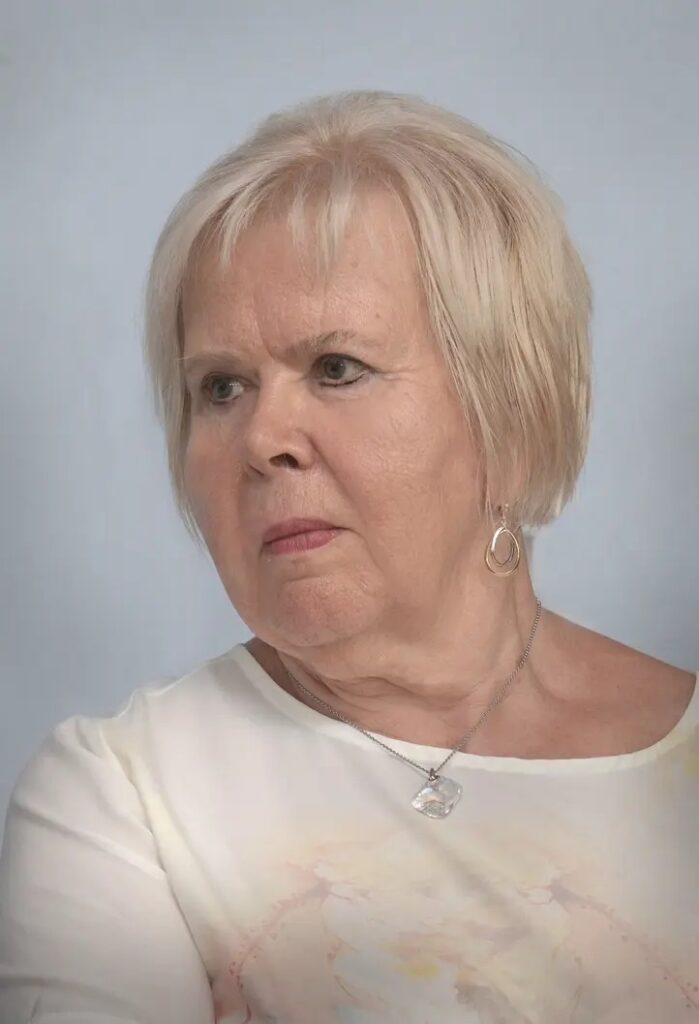Mgr. Lenka Lázňovská

Vystudovala na FF UK obory český jazyk, dějepis a estetika. Největší část svého profesního života strávila v Ústavu pro kulturně výchovnou činnost, kde vystřídala řadu pracovních pozic. Od redaktorky časopisu Kulturně výchovná činnost až po vedoucí vzdělávacího oddělení. V poslední předlistopadové dekádě získala možnost ve funkci vedoucí divadelního oddělení spojit svou práci s osobním zájmem o divadlo. Po listopadu 1989 nastoupila do Národního informačního a poradenského střediska pro kulturu do pozice tajemnice útvaru pro amatérské umění, poté byla jeho vedoucí. V roce 2008 ji ministr kultury jmenoval ředitelkou této státní příspěvkové organizace, kde působí dodnes. Má za sebou bohatou publicistickou činnost, přednáší doma i v zahraničí. Několik období byla volenou prezidentkou Středoevropské sekce mezinárodní nevládní organizace pro amatérské divadlo AITA/IATA. Iniciovala, vedla či se podílela na několika výzkumných projektech. Za všechny je možné jmenovat výzkum dějin českého amatérského divadla (členka autorského kolektivu publikace Cesty českého amatérského divadla), zkoumání významu dětských estetických aktivit pro rozvoj osobnosti dítěte, současný výzkum dopadu covidu-19 na veřejné kulturní služby. Je spoluautorkou několika certifikovaných metodik (Indikátory efektivity činnosti kulturních subjektů jako nástroj jejich veřejné podpory, veřejná podpora kulturních aktivit seniorů). Vede semináře pro kulturní pracovníky, příležitostně působí na Katedře arts managementu VŠE. V roce 2021 zahájila své působení na VŠ AMBIS v oboru arts management.
She studied Czech language, history and aesthetics at the Faculty of Arts of Charles University. Most of her professional life was spent at the Institute for Cultural and Educational Activities, where she held a number of positions. From the editor of the journal Cultural Educational Activity to the head of the educational department. In the last pre-liberation decade she had the opportunity to combine her work with her personal interest in theatre as head of the theatre department. After November 1989, she joined the National Information and Consulting Centre for Culture as Secretary of the Amateur Arts Department, after which she was its Head. In 2008, the Minister of Culture appointed her Director of this state-funded organisation, where she still works today. She has a rich journalistic activity, lectures at home and abroad. For several periods she was the elected president of the Central European section of the international non-governmental organisation for amateur theatre AITA/IATA. She has initiated, led or participated in several research projects. Among all of them are research on the history of Czech amateur theatre (member of the author collective of the publication Paths of Czech Amateur Theatre), research on the importance of children’s aesthetic activities for the development of the child’s personality, and current research on the impact of covid-19 on public cultural services. She is a co-author of several certified methodologies (Indicators of the effectiveness of cultural subjects as a tool for their public support, public support of cultural activities of the elderly). She conducts seminars for cultural workers, occasionally works at the Department of Arts Management of the University of Economics. In 2021 she started her career at AMBIS University in Arts Management.
POSTAVENÍ KULTURY V ČR – ÚVOD DO TÉMATU
ANOTACE
Ani lidé zajímající se o kulturu si často neuvědomují, že po listopadu 1989 získaly česká kultura a umění v řadě rysů specifické postavení. Stalo se tak jednak v procesu deetatizace (odstátnění), jednak je to důsledkem reorganizace veřejné správy po roce 2000. Neznalost těchto procesů může způsobit nedorozumění či zavinit špatná rozhodnutí kulturních aktérů. Úvod do tématu Postavení kultury v ČR si klade za cíl přinést přehled základních pojmů, legislativy a strategických rozhodnutí jako příspěvek k naší emancipaci v této oblasti.
The status of culture in the Czech Republic – an introduction to the topic
Even people interested in culture often do not realise that after November 1989 Czech culture and art have acquired a specific position in many ways. This happened both in the process of de-ethatisation and as a result of the reorganisation of public administration after 2000. Ignorance of these processes can cause misunderstandings or lead to wrong decisions by cultural actors. The introduction to the topic The Status of Culture in the Czech Republic aims to provide an overview of basic concepts, legislation and strategic decisions as a contribution to our emancipation in this area.